Displaying items by tag: lenzing
Lenzing reaches further milestones in photovoltaic and e-mobility expansion
Lenzing – The Lenzing Group, a world-leading provider of wood-based specialty fibers for the textile and nonwoven industries, and VERBUND, Austria’s leading energy transition company, are celebrating today’s launch of the first development stage of the largest ground-mounted photovoltaic system in Upper Austria. Together with its energy partner VERBUND, Lenzing is also paving the way for the transition to zero-emission mobility. The installation of electric vehicle charging infrastructure at the company’s premises underlines Lenzing’s commitment to the energy transition process.
- Largest ground-mounted photovoltaic system in Upper Austria becomes operational
Thanks to the ground-mounted photovoltaic system at the “Ofenloch” landfill site, Lenzing, in conjunction with VERBUND, is consistently moving forward on the path to a carbon-free energy supply and has commissioned the first half of the new photovoltaic system with a peak power of 2,780 kWp. Full commissioning of the system with a peak power of 5,560 kWp is envisaged in mid-October. Annual electricity production will amount to 6,000,000 kWh, which is expected to cut CO2 emissions by some 4,400 tonnes per year. The Austrian pioneer in fiber production already commissioned three rooftop photovoltaic systems in spring/summer of 2022, with a peak power of 1,454 kWp and annual electricity production of some 1,508,000 kWh. The electricity flows directly into the company’s on-site production and will also power electric charging stations in future. In the first development stage, 16 wallboxes are set to be installed by the end of the year. A further 32 charging points are planned for 2023. The charging stations will be accessible to staff, visitors and the company’s own vehicle fleet.
Sustainability as a driver of innovation
Sustainability is a precondition for every new development at Lenzing. “Sustainable management forms the basis of our long-term economic success. This is why we are working with strong partners to become more independent of the turmoil on the energy market and to ensure greater planning reliability. Due to our consistent expansion in the field of photovoltaic and the transition to e-mobility, we are playing a pioneering role in Upper Austria and providing an important contribution to the region’s photovoltaic strategy for 2030,” comments Stephan Sielaff, CEO of the Lenzing Group.
“VERBUND’s photovoltaic operator model allows us to make the transition to solar power without incurring investment costs or risks. Thanks to the constant expansion in renewable energy, we remain on course to ecologize the value chain, while optimizing our carbon footprint, cutting costs and reducing the load on the grid, as we are using nearly 100 percent of photovoltaic power in our production,” explains Christian Skilich, Chief Pulp Officer of the Lenzing Group.
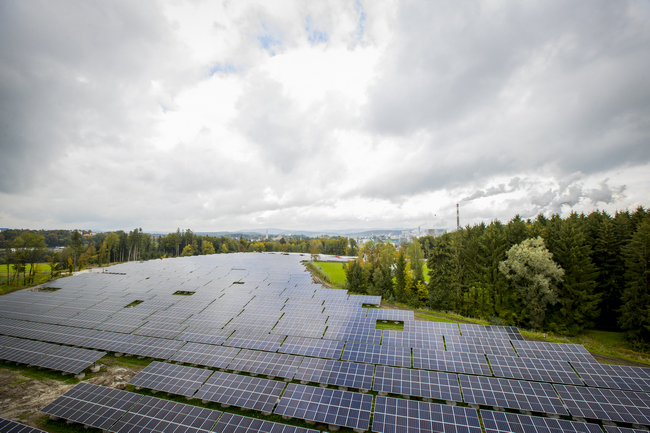
“We welcome this strategic partnership with Lenzing. Thanks to our electricity production, which is mainly derived from hydro, wind and solar power, we are making a key contribution to the energy and climate targets of Austria and Europe. We are also consistently investing in securing a future based on renewable energy. VERBUND invests some EUR 1 billion annually in the development of electricity production, storage and networks. But VERBUND also acts as an energy partner, supporting industrial companies with our solutions on their path to a green energy future. Because working together is the only way to manage the energy transition,” says Michael Strugl, Chairman of the Board of VERBUND.
About the Lenzing Group
The Lenzing Group stands for ecologically responsible production of specialty fibers made from the renewable raw material wood. As an innovation leader, Lenzing is a partner of global textile and nonwoven manufacturers and drives many new technological developments.
The Lenzing Group’s high-quality fibers form the basis for a variety of textile applications ranging from elegant clothing to versatile denims and high-performance sports clothing. Due to their consistent high quality, their biodegradability and compostability Lenzing fibers are also highly suitable for hygiene products and agricultural applications.
The business model of the Lenzing Group goes far beyond that of a traditional fiber producer. Together with its customers and partners, Lenzing develops innovative products along the value chain, creating added value for consumers. The Lenzing Group strives for the efficient utilization and processing of all raw materials and offers solutions to help redirect the textile sector towards a closed-loop economy. In order to reduce the speed of global warming and to accomplish the targets of the Paris Climate Agreement and the “Green Deal” of the EU Commission, Lenzing has a clear vision: namely to make a zero-carbon future come true.
TENCEL™, VEOCEL™, LENZING™, REFIBRA™, ECOVERO™, LENZING MODAL™, LENZING VISCOSE™, MICROMODAL™ and PROMODAL™ are trademarks of Lenzing AG.
About VERBUND
VERBUND is Austria’s leading energy company and one of the largest hydropower producers in Europe. The company generates around 97 percent of its electricity from renewable energies, primarily hydropower. VERBUND's electricity operations span 12 countries and the company achieved annual revenue of some EUR 4.8 billion in 2021 with a headcount of around 3,200. In collaboration with its subsidiaries and partners, activities at VERBUND range from electricity production and transport to international trade and distribution. VERBUND has been listed on the Vienna Stock Exchange since 1988, with 51% of its shares owned by the Republic of Austria.
As one of Europe’s most environmentally-friendly energy companies, VERBUND makes a material contribution to supply security. It is particularly committed to climate and environmental protection, as well as resource conservation and social responsibility. Sustainability is a core component of the company’s strategy and corporate responsibility, which is stipulated in the code of conduct for sustainable corporate governance. As VERBUND works intensively on the development of renewable energy, it makes a key contribution to a low-carbon future. VERBUND is a signatory of the UN Global Compact and supports the United Nations’ Agenda 2030 for sustainable development, including the 17 sustainable development goals (SDGs). Further information can be found at: www.verbund.com
Lenzing rated “sustainability champion” by MSCI ESG
The Lenzing Group, the world’s leading supplier of wood-based specialty fibers, has received further recognition of its performance in sustainability. The prestigious rating agency MSCI has upgraded its rating for the Lenzing Group from “A” to “AA” as at September 2021. As a result, Lenzing ranks among the top 6 percent of companies rated in its peer group.
“We strongly believe that the fiber industry will have to change in order to meet the ecological and social demands of the future. The issue of sustainability has been firmly anchored in our strategy for many years and is fundamental to our commercial success. Lenzing is an absolute pioneer in this field and we will continue to be a role model in future”, says Thomas Obendrauf, Chief Financial Officer of the Lenzing Group.
The upgrade to the MSCI ESG rating will also lead to a reduction in Lenzing’s interest expense. Lenzing placed a bonded loan worth EUR 500 mn in November 2019, which is linked to its sustainability performance. In accordance with its commitment under the bonded loan placement, the company will donate the full amount of the interest expense saved thanks to the rating revision to a project it supports.
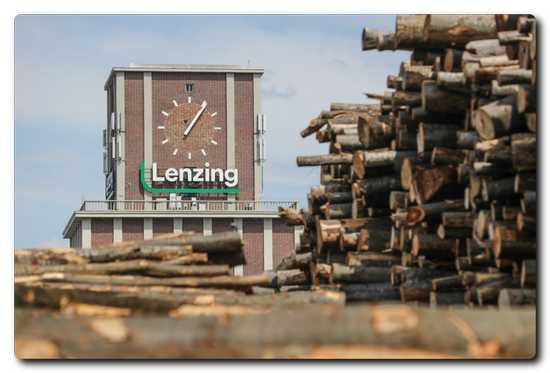
Vision of a zero-carbon future
The rating agency MSCI, whose rating determines the interest rate for the bonded loan, cited the company's ambitious climate targets, its approach to promoting a circular economy and exceptionally good governance structure as the main reasons for the upgrade.
Lenzing is actively involved in tackling the problems arising from climate change by implementing its science-based targets. In 2019, Lenzing set the strategic goal of halving its greenhouse gas emissions per ton of product by 2030. Its vision for 2050 is to achieve climate neutrality. The implementation of two key projects in Brazil and Thailand is an important milestone in this process, while the investments in its existing locations in Asia are also consistent with Lenzing’s decarbonisation targets.
Another milestone in Lenzing’s push to implement its ambitious climate and sustainability targets is its collaboration with Swedish pulp producer Södra. Both of these global market leaders, which have proactively engaged in promoting a circular economy in the fashion industry for many years, are pooling their resources to drive this issue forward and make a vital contribution to solving the problem of global textile waste.
Platinum status from EcoVadis
Lenzing has received multiple awards for its performance in 2021, especially in the field of sustainability. Its rating from EcoVadis with regard to corporate social responsibility is particularly outstanding. Having achieved platinum status for the first time, Lenzing ranks among the world’s top 1 percent of companies evaluated based on their approach to the environment, fair working conditions and human rights, as well as ethics and sustainable procurement.
The not-for-profit environmental organization Carbon Disclosure Project (CDP) has also commended Lenzing’s efforts to combat climate change once again. The listing on CDP’s Supplier Engagement Leaderboard is attributable to the company’s leading role in working with suppliers.
About the Lenzing Group
The Lenzing Group stands for ecologically responsible production of specialty fibers made from the renewable raw material wood. As an innovation leader, Lenzing is a partner of global textile and nonwoven manufacturers and drives many new technological developments.
The Lenzing Group’s high-quality fibers form the basis for a variety of textile applications ranging from elegant ladies clothing to versatile denims and high-performance sports clothing. Due to their consistent high quality, their biodegradability and compostability Lenzing fibers are also highly suitable for hygiene products and agricultural applications.
The business model of the Lenzing Group goes far beyond that of a traditional fiber producer. Together with its customers and partners, Lenzing develops innovative products along the value chain, creating added value for consumers. The Lenzing Group strives for the efficient utilization and processing of all raw materials and offers solutions to help redirect the textile sector towards a closed-loop economy. In order to reduce the speed of global warming and to accomplish the targets of the Paris Climate Agreement and the “Green Deal” of the EU Commission, Lenzing has a clear vision: namely to make a zero-carbon future come true.
Key Facts &Figures Lenzing Group 2020
- Revenue: EUR 1.63 bn
- Nameplate capacity: 1,045,000 tons
- Employees: 7,358
TENCEL™, VEOCEL™, LENZING™, REFIBRA™, ECOVERO™, LENZING MODAL™, LENZING VISCOSE™, MICROMODAL™ and PROMODAL™ are trademarks of Lenzing AG.
Lenzing expands innovative fiber identification technology to TENCELTM branded fibers
The Lenzing Group is proud to announce the extension of its revolutionary fiber identification technology to TENCELTM branded lyocell and modal fibers, solidifying its commitment to providing supply chain transparency along the entire textile production process. The successful launch and feedback from the industry on the system used for LENZINGTM ECOVEROTM branded fibers, as well as the growing number of wood-based cellulosic manufacturers, encouraged Lenzing to further expand the technology for the TENCELTM brand to ensure traceability of its products.
- Lenzing’s fiber identification technology relies on physical identification of the fiber, enabling traceability and protection from counterfeiting.
- The system will now be expanded to include all fiber types under the TENCELTM brand, elevating supply chain transparency for the textiles industry.
Pioneering technology to increase visibility for brands and consumers
Lenzing’s fiber identification technology provides physical identification of fiber origin at different stages of textile products such as the fabric and garment level. This enables full traceability of the fiber, protects from counterfeiting and provides assurance to brands and retailers that their products are made from TENCELTM branded lyocell and modal fibers. It also guarantees that the fibers are produced in state-of-the-art-production facilities that meet high standards for resource efficiency and environmental and social responsibility. This allows brands and consumers to have full visibility of how and where their products have been made.
Fiber identification will be a vital part of the fabric certification process within Lenzing E-Branding Service. As of November 2021, all fabrics will be tested for fiber identification, enhancing the security of Lenzing’s online services and testing facilities and increasing transparency and security between value chain partners. By the first half of 2022, additional services for brands and retailers will be integrated onto Lenzing E-branding Service.
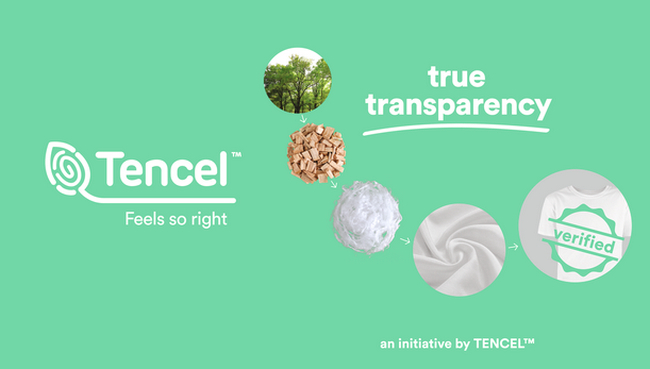
Enhancing sustainability in the supply chain
The textile industry has always been aiming to tackle environmental issues such as pollution and carbon emissions. Increasingly, brands are embracing sustainability, but the take up has been slow, especially for manufacturers and suppliers. In order to enhance the industry’s ability to manage its value chain more sustainably, both brands and consumers must be fully aware of the nature and magnitude of the issues within the process. Tracking and traceability of raw materials in the final product can ensure raw materials originate from responsible resources, comply with industry standards and thereby prevent usage of materials from controversial sources. In the long run, this will help improve the overall sustainability of the industry thanks to informed decision-making by all parties.
“As the awareness of sustainability grows, we see the need to continuously improve transparency and traceability of our products, so as to make sure our brand credentials are well protected and trusted by industry stakeholders and consumers,” says Florian Heubrandner, Vice President Global Textiles Business at Lenzing AG. “By extending the TENCELTM brand’s effort on supply chain transparency with our fiber identification technology, we hope to enable the textile industry to become more sustainable, as well as ensure our brand partners have the credibility to communicate their sustainability efforts and combat greenwashing.”
Protecting brand credentials with eco-friendly assurance
As a result of the push for sustainability in the fashion industry, more brands are looking to commit to sourcing cellulosic fibers from eco-conscious producers with stringent wood sourcing policies and industry-recognized production guidelines in terms of ecological and social impact. Using Lenzing’s fiber identification technology and being able to track fibers throughout the process, provides consumers with an assurance that the clothing and home textile products they buy are made of sustainable TENCELTM branded fibers.
Fostering the future of raw material transparency through fiber identification technology
As brands and consumers become more aware of the importance of informed purchase decisions, it is becoming more imperative to offer proofs around the production process. The combination of both physical and digital traceability allows brands to easily verify the materials used in their products – this will become a key driver in the textile and fashion industry. Through Lenzing’s partnership with TextileGenesisTM to launch a blockchain-enabled supply chain traceability platform, in addition to its innovative E-branding Service, Lenzing has been at the forefront of digital traceability and has been creating an unprecedented level of traceability.
“Over the next few years, branded fiber products will employ fiber identification technology on a broader level, and, in time, it will be possible to real time track and trace materials through the supply chains. We hope that our success can provide the industry with an example of how innovation empowers sustainability and help to shift perception towards proven sustainable solutions,” comments Heubrandner.
About the Lenzing Group
The Lenzing Group stands for ecologically responsible production of specialty fibers made from the renewable raw material wood. As an innovation leader, Lenzing is a partner of global textile and nonwoven manufacturers and drives many new technological developments.
The Lenzing Group’s high-quality fibers form the basis for a variety of textile applications ranging from elegant ladies clothing to versatile denims and high-performance sports clothing. Due to their consistent high quality, their biodegradability and compostability Lenzing fibers are also highly suitable for hygiene products and agricultural applications.
The business model of the Lenzing Group goes far beyond that of a traditional fiber producer. Together with its customers and partners, Lenzing develops innovative products along the value chain, creating added value for consumers. The Lenzing Group strives for the efficient utilization and processing of all raw materials and offers solutions to help redirect the textile sector towards a closed-loop economy. In order to reduce the speed of global warming and to accomplish the targets of the Paris Climate Agreement and the “Green Deal” of the EU Commission, Lenzing has a clear vision: namely to make a zero-carbon future come true.
Two champions of post-consumer textile recycling joining forces
Together, Lenzing and Södra take a giant leap further towards closing the loop from fiber to fiber in fashion.
Lenzing, a leading global supplier of wood-based specialty fibers, and Södra, a world-class producer of pulp, signed a cooperation agreement on, June 02, 2021, with the clear objective of making a decisive contribution to addressing the enormous textile waste challenges of the industry and the society. The cooperation involves the transfer of knowledge between the two companies, which have been proactively driving the circular economy issue for many years, and a joint process development followed by a capacity expansion for pulp from post-consumer waste. The goal is to process 25,000 tons of textile waste per year by 2025.
The fashion industry is one of the major polluting industries in the world. Millions of tons of textile waste are created each year, most of it ends up in landfills. In the spirit of the circular economy transition, both Lenzing and Södra have independently addressed the issue and developed appropriate solution options so far. Both companies are experts in their respective fields with many years of large-scale industrial experience.
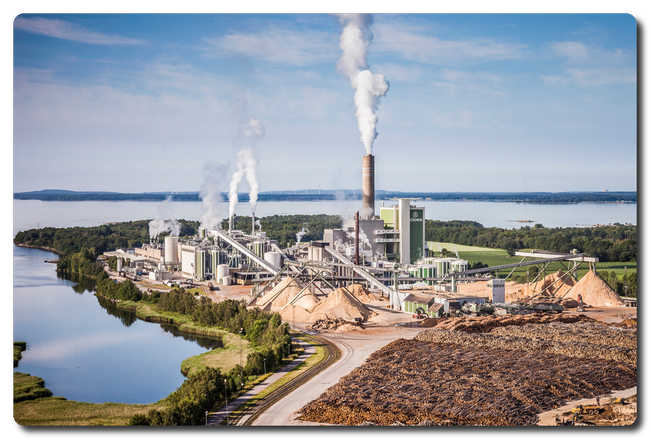
Södra CEO: "We now taking the next step on our journey"
Together, they give textile recycling a huge boost by developing technologies further towards a broader, industrial-scale use of post-consumer cellulosic waste. The jointly developed pulp OnceMore® will subsequently also be used as a raw material for the production of Lenzing’s TENCEL™ x REFIBRA™ branded specialty fibers.
“The cooperation with Södra is a major milestone towards achieving our ambitious climate and sustainability goals. We are proud to be able to go this way with a competent partner. One company alone cannot solve the pressing issue of textile waste. It is proactive partnerships like this that enable us to move forward and bring about real systemic change”, says Christian Skilich, Member of the Managing Board of Lenzing.
“With OnceMore® pulp, Södra has created a globally unique solution to base textile on a recycled source. By joining forces with Lenzing, we now taking the next step on our journey and will bring world-class recycling to the textile value chain. Through a new investment, we will also ten-fold our production capacity of OnceMore® pulp during 2022 and have a higher level of recycled textile content. These are important steps towards our long-term target to create a circular textile industry”, says Lotta Lyrå, President and CEO of Södra.
“In this turn around decade for our planet, making forest-based fabrics from recycled textiles is critical to protect biodiversity, alleviate pressure on forests and address the growing climate crisis. Canopy is excited to see these two major producers join forces to bring vital Next Generation Solutions to the fashion industry. We look forward to seeing greater commercial volumes come to market”, says Nicole Rycroft, Canopy’s Founder and Executive Director.
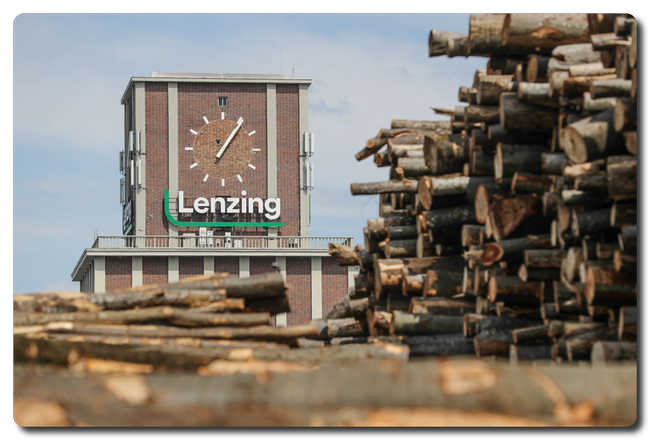
Two companies with bold visions and large-scale solutions for the reuse of waste
In line with its circular economy vision, “We give waste a new life. Every day”, Lenzing drives the industry towards a fully-fledged circular economy by striving to give waste a new life in all aspects of its core business and by co-developing circular solutions with potential partners in and outside the current value chain. Lenzing has extensive knowledge in developing cutting-edge innovations in recycling such as its REFIBRA™ and Eco Cycle technologies. Besides virgin dissolving wood pulp, these technologies allow the processing of a substantial proportion of recycled materials based on pre-consumer cottons scraps and post-consumer garments.
OnceMore® by Södra is the world’s first process for industrial-scale recycling of textile waste of blended fibers, and it’s the forest who makes that possible. The process combines wood cellulose with textile waste to create a pure, high-quality dissolving pulp which can be used to produce new clothing and other textile products. During 2022, a new investment will ten-fold the production capacity of OnceMore® pulp and reach a higher level of recycled textile content. The goal for 2025 is to process 25,000 tons of textile and offer a OnceMore® pulp based on our wood material and 50 percent recycled textile material.
About the Lenzing Group
The Lenzing Group stands for ecologically responsible production of specialty fibers made from the renewable raw material wood. As an innovation leader, Lenzing is a partner of global textile and nonwoven manufacturers and drives many new technological developments.
The Lenzing Group’s high-quality fibers form the basis for a variety of textile applications ranging from elegant ladies clothing to versatile denims and high-performance sports clothing. Due to their consistent high quality, their biodegradability and compostability Lenzing fibers are also highly suitable for hygiene products and agricultural applications.
The business model of the Lenzing Group goes far beyond that of a traditional fiber producer. Together with its customers and partners, Lenzing develops innovative products along the value chain, creating added value for consumers. The Lenzing Group strives for the efficient utilization and processing of all raw materials and offers solutions to help redirect the textile sector towards a closed-loop economy. In order to reduce the speed of global warming and to accomplish the targets of the Paris Climate Agreement and the “Green Deal” of the EU Commission, Lenzing has a clear vision: namely to make a zero-carbon future come true.
Key Facts & Figures Lenzing Group 2020
Revenue: EUR 1.63 bn
Nameplate capacity: 1,045,000 tons
Employees: 7,358
TENCEL™, VEOCEL™, LENZING™, REFIBRA™, ECOVERO™, LENZING MODAL™, LENZING VISCOSE™, MICROMODAL™ and PROMODAL™ are trademarks of Lenzing AG.
About Södra
Södra was founded in 1938 and is the largest forest-owner association in Sweden, with a membership of 53,000 forest owners. Södra is also an international forest industry Group, with 3,000 employees around the world. Net sales in 2020 were 20 SEK billion. Balancing production efficiency with nature conservation guides everything that we do. We produce timber products, pulp for paper and textiles, and green energy. We use every part of the tree, and are always looking to develop new products from this fantastic, renewable raw material. Södra is a world-leading producer of market pulp and also owns one of the largest sawmill operations in Europe. Through value-generating relationships and a long-term approach, Södra is leading the way for the future of sustainable forestry.
Key Facts & Figures Södra 2020
Net sales: SEK 20,351 million
Operating profit: SEK 891 million
Employees: 3,100
Lenzing solid in a historically difficult market environment
Lenzing – Despite a generally difficult demand environment for textile fibers and a drastic drop in prices for standard viscose, the Lenzing Group recorded a solid business development in 2019. The disciplined implementation of the sCore TEN corporate strategy and the accompanying focus on specialty fibers once again helped to mitigate the effect of unprecedentedly low standard viscose prices.
As a result, revenue dropped by 3.3 percent from EUR 2.18 bn to EUR 2.11 bn in 2019, driven by lower selling prices as well as standard fiber volumes. Due to positive mix effects and more resilient specialty fiber prices, the share of specialty fibers increased from 45.5 percent to 51.6 percent of revenue. The earnings development was largely influenced by the decline in revenue, but also by negative currency effects on material and personnel costs. EBITDA (earnings before interest, tax, depreciation and amortization) fell by 14.4 percent from EUR 382 mn to EUR 326.9 mn. The EBITDA margin declined from 17.6 percent to 15.5 percent. Net profit, at EUR 114.9 mn, was 22.4 percent lower than in the previous year at EUR 148.2 mn. Earnings per share amounted to EUR 4.63 (2018: EUR 5.61).
The Management Board will propose at the 76th Annual General Meeting a dividend of EUR 1.00 per share for the 2019 financial year (2018: dividend of EUR 3.00 plus a special dividend of EUR 2.00 per share), which is equivalent to a total dividend payout of EUR 26.6 mn. The Supervisory Board accepted this proposal at its meeting held on March 11, 2020.
“Lenzing and the entire textile value chain operated in a historically difficult market environment in 2019, which had a negative impact on our revenue and earnings development. The focus on specialty fibers has been contributing to the company’s resilience in the reporting period and we feel very well positioned with our corporate strategy. Our goals for 2024 underpin this confidence in our future”, says Stefan Doboczky, Chief Executive Officer of the Lenzing Group. “The implementation of the key projects in Thailand and Brazil plays a central role in further strengthening our market position and in accomplishing our ambitious climate targets. We are very satisfied with the progress of both projects,” Doboczky adds.
CAPEX (acquisition of property plant and equipment) amounted to EUR 244 mn in 2019, reflecting the Lenzing Group’s investment activities on increasing internal pulp production and raising the share of specialty fibers in line with the sCore TEN strategy. The major projects in Brazil and Thailand will have an increased impact on the CAPEX volume as of 2020.

Expansion of pulp capacities
The expansion and modernization of the dissolving wood pulp plants in Lenzing and Paskov, which started in 2017, will increase pulp production capacities by roughly 35,000 tons annually. The expansion in Lenzing was successfully implemented in the second half of 2019. At roughly the same time, the new capacities at the Paskov plant were gradually started up. This process will be completed in the first quarter of 2020.
Based on the decision to build a dissolving wood pulp plant in Brazil with its partner Duratex, Lenzing will increase its self-supply by 500,000 tons annually, thus strongly enhancing backwards integration. The plant is expected to start operations in the first half of 2022. Lenzing and Duratex hold 51 percent and 49 percent, respectively, in the joint venture. Industrial CAPEX are expected to total roughly USD 1.3 bn (based on current exchange rates and customary tax refunds).

Expansion of specialty fiber capacities
In 2019, Lenzing also started the construction of a state-of-the-art lyocell production facility in Thailand. The investment for the new plant with a capacity of 100,000 tons amounts to roughly EUR 400 mn. Construction work started in the second half of 2019. The completion is scheduled for the end of 2021.
Lenzing aims to achieve stable and profitable growth and to improve the ecological footprint of the textile and nonwovens industry by expanding the production of specialty fibers. In addition, the conversion of production capacities from standard viscose to LENZING™ ECOVERO™ branded specialty viscose fibers progressed well during the reporting period. LENZING™ ECOVERO™ fibers are very well received on the market thanks to their very favorable ecological footprint and their unique identification technology.
Lenzing shines at the Oscars
The TENCEL™ brand’s visibility was further increased through co-branding during the reporting period. Compared with the previous year, the number of end products labeled with the TENCEL™ brand nearly doubled to 173 mn. The digital marketing concept “Where to buy” was introduced on the website www.tencel.com in the first quarter of 2019. Based on this concept, products made from TENCEL™ fibers can be presented and linked in the online shops of more than 135 partners, including brands like H&M, Levi’s, Allbirds, Victoria’s Secret, Esprit, Pottery Barn and Asos.
Lenzings fibers were also a great success at this year’s Oscar ceremony in Los Angeles. Three dresses worn by nominees and winners were handmade from fabrics with our TENCEL™ Luxe filaments. The strong response on social media accelerated awareness for this sustainable and innovative product of the Lenzing Group.
Science Based Targets initiative approves climate targets
During the reporting year Lenzing announced its goal of a substantial reduction in CO2 emissions, for which investments of more than EUR 100 mn in sustainable technologies and production facilities are earmarked in the coming years. As a first milestone set for the year 2030, Lenzing aims to cut its own CO2 emissions per ton of product by 50 percent. For 2050, Lenzing has announced a vision towards net-zero CO2 emissions. The Science Based Targets initiative, the most recognized organization in the field of climate-relevant target setting, scientifically validated Lenzing’s climate targets in the second half of 2019. Lenzing is consequently the first producer of wood-based fibers with set science-based targets.
Lenzing sets ambitious goals for 2024
The Lenzing Group worked on adapting its goals as part of the sCore TEN strategy in the reporting period. The primary focus in the coming years is on the implementation and execution of set climate targets and investment projects in Thailand and Brazil. Lenzing aims to increase the share of high-quality specialty fibers in fiber revenue to 75 percent by 2024 and the share of internally produced pulp to more than 75 percent. In line with its strategic commitment for 2024, Lenzing strives to reduce CO2 emissions per ton of product by more than 40 percent compared with 2017. The EBITDA target for 2024 is EUR 800 mn.
The solid development in recent years despite very difficult market environment at times, reassures Lenzing in its strategic direction. Today, the company is substantially more resilient than it was a few years ago due to its specialty strategy and its strong brands based on innovation and acting sustainably. Lenzing continues to see strong structural growth in the global fiber market over the coming years, with demand for wood-based cellulosic fibers expected to grow 4 to 6 percent per year until 2024, thus nearly twice as fast as the global fiber market.
Outlook
The International Monetary Fund expects a slight recovery of global economic growth to 3.3 percent in 2020, while at the same time warning of several risks. The increased frequency of extreme weather events and currently also the coronavirus crisis could have a strong impact on the global economy in 2020. The currency environment in the regions relevant to Lenzing is also expected to remain volatile.
Demand on the global fiber markets is currently difficult to predict due to the spreading of the coronavirus, which is paralyzing large parts of the textile value chain, especially in China. According to preliminary calculations, cotton stock levels will remain high in the 2019/2020 season. The price levels for cotton and polyester are expected to remain subdued.
Capacity expansions for standard viscose are expected to be lower than in 2019, but will nevertheless lead to an increase in surplus capacity. The pressure on prices, which have been at a historic low for a considerable period of time, should therefore persist in 2020. Despite additional lyocell capacities in China and low visibility, the Lenzing Group expects the comparatively positive development of its specialty fiber business to continue.
Driven by the challenging situation in standard viscose and low paper pulp prices, prices for dissolving wood pulp are expected to remain at low levels. Caustic soda prices in Asia have already declined significantly over the past months; this development is now also noticeable in Europe.
The above effects significantly impact earnings visibility for 2020. The Lenzing Group currently expects the result for 2020 to be below the level of 2019.
The market developments reassure the Lenzing Group in its chosen corporate strategy sCore TEN. Lenzing will continue to put a particular focus on the strategic investment projects which will yield a significant contribution to earnings starting from 2022.
Decision taken: Lenzing joint venture to build dissolving wood pulp plant in Brazil
The Lenzing Group, world market leader for wood-based cellulosic fibers, and Duratex, the largest producer of industrialized wood panels in the southern hemisphere, announce that they will build a 500,000 t dissolving wood pulp plant in the State of Minas Gerais, near Sao Paulo (Brazil). The start-up is planned for the first half of 2022. In the joint venture, Lenzing holds a 51 percent, Duratex a 49 percent stake. The expected industrial CAPEX will be approx. USD 1.3 bn (based on current exchange rates and customary tax refunds). The project is financed through long-term debt. The corresponding financing contracts are expected to be concluded at the end of the first quarter of 2020.
- Investment of approx. USD 1.3 bn in 500,000 t dissolving wood pulp plant
- Key milestone to structurally strengthen cost leadership position
- Significant step towards carbon neutrality
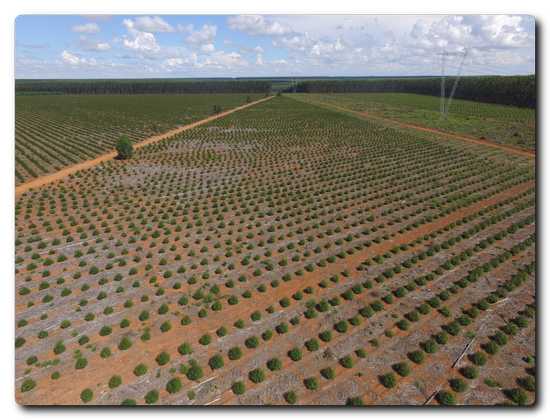
Key milestone to structurally strengthen cost leadership position
The new dissolving wood pulp plant strengthens the Lenzing Group’s backward integration and cost position as well as its specialty fiber growth in line with its sCore TEN corporate strategy. The single-line dissolving wood pulp plant with an annual nameplate capacity of 500,000 tons will be the largest and most competitive production facility of its kind. Dissolving wood pulp is a key raw material required for manufacturing Lenzing’s biobased fibers. The joint venture will supply the entire volume of dissolving wood pulp to the Lenzing Group.
“Wood-based cellulosic fibers offer an important contribution to enhance sustainability in the textile industry. In line with its corporate strategy sCore TEN, Lenzing is committed to drive organic growth in this market. With this investment, we will become more competitive, act more independently and subsequently strengthen our market position. The trust and support of the main shareholders of Lenzing and Duratex were of great importance for this key project”, states Stefan Doboczky, CEO of the Lenzing Group.
Strong focus on sustainability
In planning the new production facility, particular importance was given to sustainability aspects. The joint venture secured FSC®-certified plantations1 covering an area of over 44,000 hectares to provide the necessary biomass. These plantations operate completely in accordance with the guidelines and high standards of the Lenzing Group for sourcing wood and pulp. The plant will operate among the highest productive and energy-efficient in the world and will feed the 40 percent of excess bioelectricity generated on site as “green energy” into the public grid. With this project, Lenzing sets a milestone in its strategy to carbon neutrality.
About the Lenzing Group
The Lenzing Group stands for ecologically responsible production of specialty fibers made from the renewable raw material wood. As an innovation leader, Lenzing is a partner of global textile and nonwoven manufacturers and drives many new technological developments.
The Lenzing Group’s high-quality fibers form the basis for a variety of textile applications ranging from elegant ladies clothing to versatile denims and high-performance sports clothing. Due to their consistent high quality, their biodegradability and compostability Lenzing fibers are also highly suitable for hygiene products and agricultural applications.
The business model of the Lenzing Group goes far beyond that of a traditional fiber producer. Together with its customers and partners, Lenzing develops innovative products along the value chain, creating added value for consumers. The Lenzing Group strives for the efficient utilization and processing of all raw materials and offers solutions to help redirect the textile sector towards a closed-loop economy.
Lenzing leads Canopy ranking for sustainable wood procurement
Sbt.: In its “Hot Button Report”, the Canadian non-profit organization Canopy particularly highlights the innovative strength of the Lenzing Group, its active contribution to forest conservation and high level of transparency.
Lenzing – In the “Hot Button Report” issued by the Canadian non-profit organization Canopy, the Lenzing Group was once again rated number one in the world, thus confirming its role as the sustainability trailblazer in the textile industry. In this widely recognized ranking, Canopy grades the world’s 32 largest producers of wood-based fibers with respect to their success in achieving sustainable wood and pulp sourcing. Wood and the pulp derived from it are the most important raw materials underlying Lenzing’s sustainable production of cellulosic fibers.

“We are extremely proud of this top ranking. It underlines our leading position as a sustainability trailblazer in the manufacturing sector and in the fiber industry in particular. It gives our customers the confidence that we have created the right structures to prevent the sourcing and use of wood from ancient and endangered forests”, says Stefan Doboczky, CEO of the Lenzing Group. “Environmental protection and the prudent use of resources are an integral part of our responsibility to nature and society”, he adds.
Lenzing primarily convinced the non-profit organization Canopy this year thanks to its innovative strength used to promote the circular economy in the textile industry, its active contribution towards protecting the forests and preserving biodiversity as well as its high level of transparency in pulp sourcing.
Lenzing received a total of 26.5 points (up 3.5 points from the previous year) and was thus given the “light to mid green shirt” rating. This means that in using the wood-based cellulosic fibers produced by the Lenzing Group, there is only a very minimal danger that wood is derived from primeval forests and endangered forest areas. In the Wood and Pulp Policy published by Lenzing, the company confirms that it only sources wood and pulp from non-controversial sources.
About the Lenzing Group
The Lenzing Group stands for ecologically responsible production of specialty fibers made from the renewable raw material wood. As an innovation leader, Lenzing is a partner of global textile and nonwoven manufacturers and drives many new technological developments.
The Lenzing Group’s high-quality fibers form the basis for a variety of textile applications ranging from elegant ladies clothing to versatile denims and high-performance sports clothing. Due to their consistent high quality, their biodegradability and compostability Lenzing fibers are also highly suitable for hygiene products and agricultural applications.
The business model of the Lenzing Group goes far beyond that of a traditional fiber producer. Together with its customers and partners, Lenzing develops innovative products along the value chain, creating added value for consumers. The Lenzing Group strives for the efficient utilization and processing of all raw materials and offers solutions to help redirect the textile sector towards a closed-loop economy.
Lenzing contracts Wood to deliver world´s largest lyocell plant
Sbtl.: Professional partner confirms start-up date of the project in Thailand
Bangkok – With the recently announced plans to establish a lyocell production facility in Thailand, the Lenzing Group is taking an important step in meeting the strong demand for lyocell fibers and is further strengthening the company´s position as an industry leader in the specialty cellulosic fibers market. The proposed plant will be the largest lyocell plant in the world, with an annual capacity of 100,000 tons. The total investment volume for the first production line, including infrastructure and site development, amounts to approximately EUR 400 million. Up to four such lines can be potentially integrated and operated on the site. The project is of great importance to Lenzing as it is the first step in bringing lyocell production to Asia, featuring the largest markets, the most important customers and the most extensive growth potential in specialty fiber production.
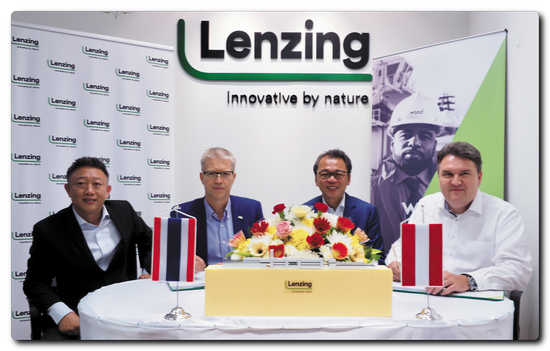
Industrial Park 304 in Prachinburi: the ideal site for this project
The project to build a plant in Prachinburi, Thailand was approved in June 2019. Industrial Park 304 in Prachinburi, located about 150 kilometers east of the Thai capital Bangkok, was selected due to its excellent overall infrastructure and the sustainable biogenic energy supply, which will help Lenzing to meet its ambitious CO2 targets. Above all, the excellent cooperation with the Thailand Board of Investment (BOI), the country’s free trade agreements with China and easy access to ASEAN’s growing middle class market were all decisive factors in selecting this site. The availability of local staff (for the planned workforce of close to 300 employees) with the required educational background to drive growth was also an important factor. The well-established operator of the industrial park, with whom Lenzing has already signed contracts for utility services, was also a reason for choosing Prachinburi.
Wood – the ideal engineering partner
A further important step was the selection of a professional engineering partner for crucial tasks such as detailed engineering, purchasing and construction management and supervision, including quality, safety, cost
and progress control. These services will be provided as part of an Engineering, Procurement and Construction
Management (EPCM) contract.
With Wood, Lenzing has found the ideal partner for this – both companies signed an EPCM contract on the
15th of August 2019. Wood was selected on the basis of having the skills needed for a project of this size and an experienced team with a strong reputation for delivering in line with project stipulations. An important element for Lenzing is the start-up date of this project which was also confirmed by Wood. Following the plant completion in the third quarter of 2021, Lenzing expects to produce the first fibers at this site in the fourth quarter of the same year.
“Growing organically on a global scale requires a strong partner in designing and building up the production assets. I am convinced that we have found the right partner in Wood. During the kick-off meetings we could feel the energy of the integrated team and their eagerness to drive that project to a successful completion and start-up in the second half of 2021”, says Heiko Arnold, CTO of the Lenzing Group.
Mike Collins, President of Capital Projects in Wood’s Asset Solutions business across Europe, Africa, Asia & Australia, adds: “We are delighted to have been chosen by Lenzing to help deliver what will be the world’s largest lyocell plant. Being selected to lead a project of this scale and complexity is testament to the outstanding technical capability we have in our Asia Pacific business, and our strong understanding of the local market environment in Thailand where we have been operating for over 50 years.”
About the Lenzing Group
The Lenzing Group stands for ecologically responsible production of specialty fibers made from the renewable raw material wood. As an innovation leader, Lenzing is a partner of global textile and nonwoven manufacturers and drives many new technological developments.
The Lenzing Group’s high-quality fibers form the basis for a variety of textile applications ranging from elegant ladies clothing to versatile denims and high-performance sports clothing. Due to their consistent high quality, their biodegradability and compostability Lenzing fibers are also highly suitable for hygiene products and agricultural applications.
The business model of the Lenzing Group goes far beyond that of a traditional fiber producer. Together with its customers and partners, Lenzing develops innovative products along the value chain, creating added value for consumers. The Lenzing Group strives for the efficient utilization and processing of all raw materials and offers solutions to help redirect the textile sector towards a closed- loop economy.
TENCEL™, VEOCEL™, LENZING™, REFIBRA™, ECOVERO™, LENZING MODAL™, LENZING VISCOSE™, MICROMODAL™ und PROMODAL™ are trademarks of Lenzing AG.
Lenzing Group builds world’s largest lyocell fiber plant in Thailand
Lenzing – The Lenzing Group is substantial increasing its production of lyocell fibers to meet the strong demand for these products and further strengthening its position as an industry leader in specialty fibers. Over the next years, it plans to invest more than EUR 1 bn in new production facilities for lyocell fibers. The first expansion phase of this ambitious growth plan, the construction of a state-of-the art lyocell fiber production plant in Prachinburi (Thailand), has now been approved. The plant will have a capacity of 100,000 tons and feature investments of approximately EUR 400 mn.
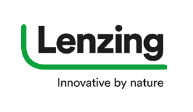 The plant sets a new milestone in the history of lyocell fibers and will be the largest site of its kind. Site grading at Industrial Park 304 around 150 kilometers east of Bangkok has been completed successfully and the investment is fully supported by the Board of Investment (BOI) of Thailand. Construction will start this fall and production will commence towards the end of 2021.
The plant sets a new milestone in the history of lyocell fibers and will be the largest site of its kind. Site grading at Industrial Park 304 around 150 kilometers east of Bangkok has been completed successfully and the investment is fully supported by the Board of Investment (BOI) of Thailand. Construction will start this fall and production will commence towards the end of 2021.
“TENCEL™ lyocell fibers are considered a benchmark in ecologically responsible fibers. This expansion underscores Lenzing’s commitment to improve the ecological footprint of the global textile industry”, says Stefan Doboczky, Chief Executive Officer of the Lenzing Group. “This investment in Thailand represents the next consistent step in the implementation of our sCore TEN strategy and will help to further transform Lenzing into a specialty fibers company”, Doboczky adds.
Thailand has favorable trade agreements with the major Asian economic blocks. The selection of Industrial Park 304 in Prachinburi was based on its excellent overall infrastructure and the sustainable biogenic energy supply, which leads to low CO2 emissions to protect the climate. Over the coming years Lenzing will further expand at the site in Thailand, which has space for several plants. The investment in the first phase already includes the general infrastructure that will benefit future expansion. Lenzing will continue to look for potentially expanding lyocell production in other parts of the world as well.
“The project has received very good attention in the engineering market. Lenzing aims at implementing the project in a strategic partnership with an international engineering company also chosen for its capability to support Lenzing’s further organic growth worldwide. Integrated teams including an international and highly skilled Lenzing workforce will work together with the engineering contractor, which will be selected soon. Commissioning of the plant and start of production will take place in the second half of 2021”, says Heiko Arnold, Chief Technology Officer of the Lenzing Group.
About the Lenzing Group
The Lenzing Group stands for ecologically responsible production of specialty fibers made from the renewable raw material wood. As an innovation leader, Lenzing is a partner of global textile and nonwoven manufacturers and drives many new technological developments.
The Lenzing Group’s high-quality fibers form the basis for a variety of textile applications ranging from elegant ladies clothing to versatile denims and high-performance sports clothing. Due to their consistent high quality, their biodegradability and compostability Lenzing fibers are also highly suitable for hygiene products and agricultural applications.
The business model of the Lenzing Group goes far beyond that of a traditional fiber producer. Together with its customers and partners, Lenzing develops innovative products along the value chain, creating added value for consumers. The Lenzing Group strives for the efficient utilization and processing of all raw materials and offers solutions to help redirect the textile sector towards a closed- loop economy.
Key Facts & Figures Lenzing Group 2018
Revenue: EUR 2.18 bn
Nameplate capacity: 1,034,000 tons
Employees: 6,839
TENCEL™, VEOCEL™, LENZING™, REFIBRA™, ECOVERO™, LENZING MODAL™, LENZING VISCOSE™, MICROMODAL™ and PROMODAL™ are trademarks of Lenzing AG
Lenzing makes a very solid start to the 2019 financial year
Lenzing – The Lenzing Group continued its solid development in the first quarter of 2019. Despite a much tighter market environment, the Lenzing Group even recorded a slight increase in revenue, proving once again that it has chosen the right path with its sCore TEN corporate strategy. The declining prices for standard viscose were largely offset in earnings.
- Very positive development of the specialty fiber business with a 47 percent share in revenue
- Market environment for standard viscose still very tight
- Resolution on dividend: EUR 3.00 plus special dividend of EUR 2.00 per share
- Outlook confirmed: Earnings for 2019 expected at a similar level as in 2018
Group revenue rose by 1.8 percent to EUR 560 mn in the first quarter of 2019 compared with the same quarter of 2018. This increase is primarily attributable to a better product mix – the share of specialty fibers in revenue of 47.3 percent significantly exceeded the prior-year value of 42.1 percent – and more favorable exchange rates. Consequently, declining prices for standard viscose were more than offset. EBITDA (earnings before interest, tax, depreciation and amortization) dropped by 9.5 percent to EUR 92 mn. In addition to the market environment for standard viscose, this was primarily caused by currency effects, which burdened material and personnel costs. The EBITDA margin dropped from 18.5 percent in the first quarter of 2018 to 16.4 percent in the reporting period. EBIT (earnings before interest and tax) fell by 21.1 percent to EUR 54.4 mn, leading to a lower EBIT margin of 9.7 percent (01-03/2018: 12.5 percent). Net profit for the period dropped by 14.5 percent from EUR 50 mn in the previous year to EUR 42.8 mn. Earnings per share amounted to EUR 1.65 (01-03/2018: EUR 1.89).
The 75th Annual General Meeting of Lenzing AG on April 17, 2019 resolved to distribute a dividend of EUR 3.00 per share as well as a special dividend totaling EUR 2.00 per share.
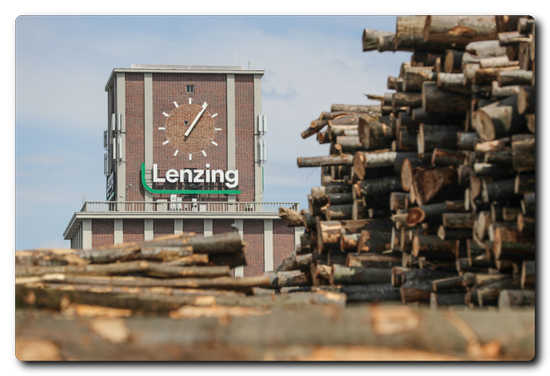
“Our specialty fiber business is still developing very well, which has made us significantly more resilient today than only a few years ago. In order to become even more resistant to market fluctuations, we continue to advance the implementation of the sCore TEN strategy and the planned major projects in Brazil and Thailand with great discipline”, says Stefan Doboczky, Chief Executive Officer of the Lenzing Group.
Expansion of pulp and lyocell capacities
CAPEX (acquisition of property, plant and equipment) dropped by 22.4 percent to EUR 45.7 mn in the first quarter of 2019. This decline is attributable to the completion of the expansion project in Heiligenkreuz (Austria) in 2018 and the ongoing planning for the major projects in Brazil and Thailand, which will only have an effect on the investment volume in the coming quarters. The basic engineering for the construction of the new lyocell plant in Prachinburi, near Bangkok, is making equally good progress as the planned establishment of the pulp plant in Minas Gerais.
Heiligenkreuz at full capacity again
At the site in Heiligenkreuz a fire occurred on February 1, 2019 causing a shutdown of the lyocell production for several weeks. Material damage and the damage resulting from the interruption of operations are covered by insurance. Production at the site is now running at full capacity again.
Even greater focus on innovation and customer intimacy
Lenzing also continues to intensify its collaboration with next generation fashion designers in Asia. Recently, with the TENCEL™ Studio, a design center featuring fashion from TENCEL™ fibers was opened in Singapore. The center is the next step in the effort to give consumers an insight into innovations and new applications. In the area of nonwovens, another milestone was set with the start of the establishment of an innovation center in Germany. The new test facility, which is being set up in cooperation with the Hof University of Applied Sciences, enables Lenzing to work even more closely with its customers and partners in the hygiene, cosmetics and medical industries.
Sustainability: Partner for Change
For the Lenzing Group, sustainability is not only a core value of the corporate strategy but also a key business driver and stimulus for innovation. The focus of the Sustainability Report 2018, which was published in March of this year, is on the wide range of activities the company is engaged in pursuing its mission of greening up the value chain. The Report is entitled “Partner for Change“, with the most recent example of this concept being the cooperation with the Swiss retailer Coop and the Austrian supermarkets of REWE International AG. Together their new reusable net bags for fruit and vegetables, Lenzing and its partners offer consumers an eco-friendly alternative to plastic packaging. Reusable net bags made from LENZING™ modal fibers offer a significant ecological advantage over conventional plastic packaging because of their natural origin, which makes them biodegradable and compostable.
Outlook
The International Monetary Fund expects a slowdown of global economic growth to 3.3 percent in 2019, mainly driven by increasing protectionist tendencies and growing geopolitical tensions. The currency environment in the regions relevant to Lenzing will remain volatile.
Demand on the global fiber markets is still positive. According to preliminary calculations, cotton inventory levels should decline slightly again in 2019. Over the past months, the polyester market recovered from slower growth at the beginning of the reporting year. The price levels for cotton and polyester are expected to remain stable. Capacity expansions for standard viscose should remain at a similar level as in the 2018 financial year. Despite strong demand, this will result in growing oversupply, which will cause even higher pressure on prices. The Lenzing Group expects the positive development of its specialty fiber business to continue.
Caustic soda prices in Asia have already declined significantly over the past months; however, there are no signs of such a development in Europe yet. Overall, Lenzing does not expect any significant changes for key raw materials that would be relevant to earnings.
Based on the current exchange rates, the Lenzing Group continues to expect its results for 2019 to reach a similar level as in 2018 despite a much tighter market environment for standard viscose. These developments reassure the Lenzing Group in its chosen corporate strategy sCore TEN. Lenzing is very well positioned in this market environment and will continue its consistent focus on growth with specialty fibers.
About the Lenzing Group
The Lenzing Group stands for ecologically responsible production of specialty fibers made from the renewable raw material wood. As an innovation leader, Lenzing is a partner of global textile and nonwoven manufacturers and drives many new technological developments.
The Lenzing Group’s high-quality fibers form the basis for a variety of textile applications ranging from elegant ladies clothing to versatile denims and high-performance sports clothing. Due to their consistent high quality, their biodegradability and compostability Lenzing fibers are also highly suitable for hygiene products and agricultural applications.
The business model of the Lenzing Group goes far beyond that of a traditional fiber producer. Together with its customers and partners, Lenzing develops innovative products along the value chain, creating added value for consumers. The Lenzing Group strives for the efficient utilization and processing of all raw materials and offers solutions to help redirect the textile sector towards a closed- loop economy.
